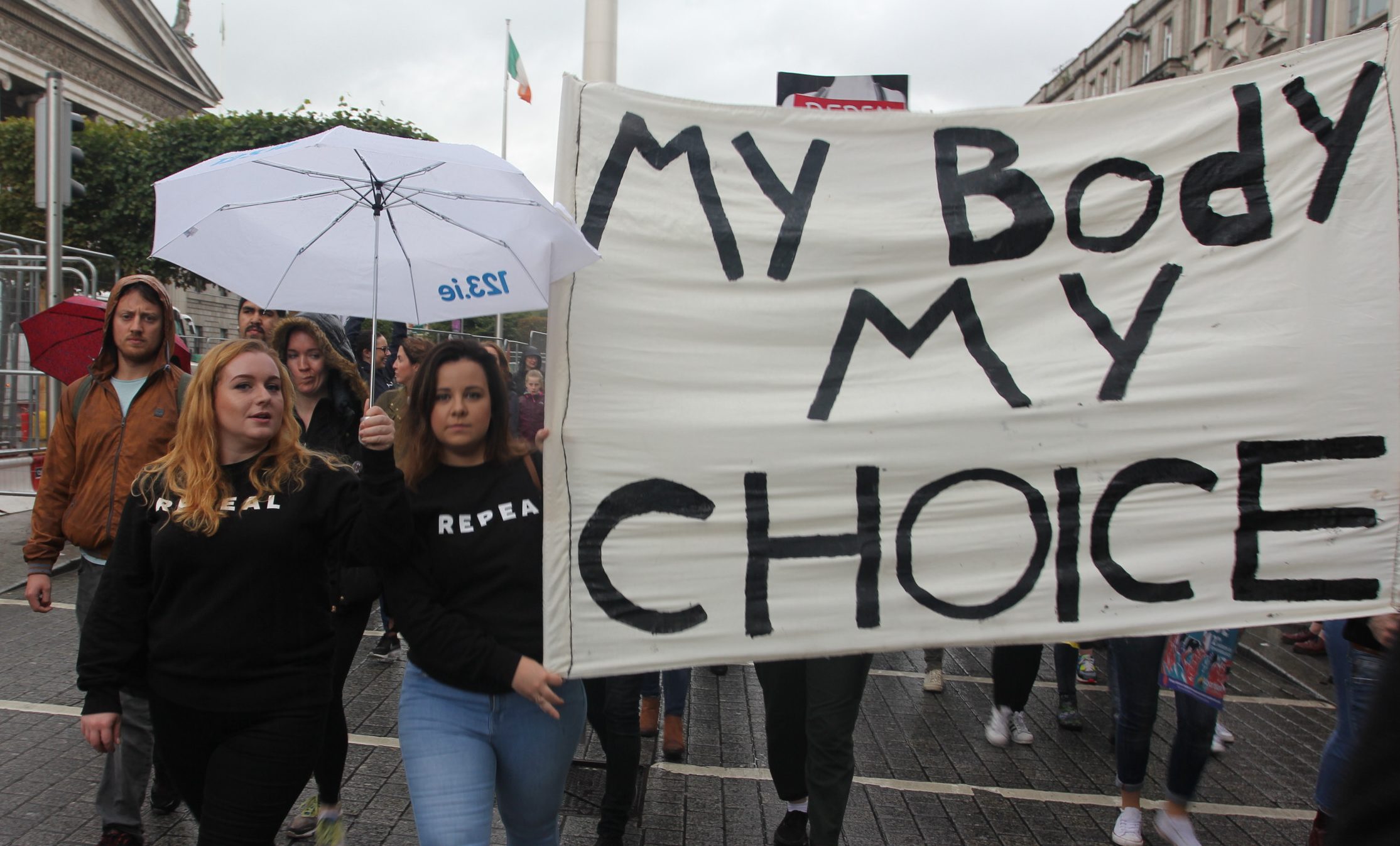Almost four years after Ireland’s electorate voted to repeal the Eighth Amendment, significant barriers to abortion access persist, forcing women to travel to receive care. Geographical coverage remains one such barrier to accessing abortion, with only one in ten GPs and just over half of maternity hospitals providing abortion services in Ireland. The North West in particular is severely lacking in abortion services — Sligo has no provision of abortion access at all. Furthermore, a staggering amount of people seeking abortion care in Ireland continue to travel elsewhere in order to access it due to the country’s restrictive legislation. Even in 2020 at the onset of the pandemic, when travelling abroad posed its own unique challenges and health risks, almost 200 women travelled from Ireland to the UK to get abortion care.
The government has now commenced its first review of abortion law since the public voted yes in the 2018 referendum, offering a valuable opportunity to improve abortion access by tackling the barriers that are still in place. The Abortion Review comprises three strands: research with service providers, research with service users and a public consultation. The public consultation process is open for submissions until close of business on April 1, providing a chance for both organisations and individuals alike to submit their recommendations for review. Submissions are open to everyone, not just those with direct experience of abortion care. Together with the Union of Students in Ireland (USI), the National Women’s Council of Ireland (NCWI) has developed a quick guide to submission which can be accessed here.
Based on the evidence gathered in both research projects and the public consultation, independent Chair Marie O’Shea will develop a report, which is due for submission to the Minister for Health in October of this year. Finally, if the report recommends legislative changes this will be then taken to the Oireachtas so that amendments to the Health Act may be voted on and taken forward.
The Abortion Working Group, led by the NWCI are calling for a number of key changes to legislation, including the full decriminalization of abortion, removal of the mandatory three-day wait period, the 28-day mortality clause for fatal foetal anomalies, and the 12-week gestational limit.
“Outlining another issue that needs to be addressed by the review, O’Connor explains ‘in order to access an abortion, you need to have a PPS number, which is a significant barrier for immigrants and asylum seekers. This has to change.'”
In a statement, Orla O’Connor, Director of the NWCI and Chair of the Abortion Working Group, said that, “access to healthcare at home was a clear call from the people of Ireland in 2018, yet sadly, we know many women are still travelling to access crucial healthcare”. Outlining another issue that needs to be addressed by the review, O’Connor explains “in order to access an abortion, you need to have a PPS number, which is a significant barrier for immigrants and asylum seekers. This has to change.”
The continued absence of safe access zones around abortion clinics to prevent the harrassment of vulnerable service users and providers is another matter of great concern that the Abortion Working Group hopes will finally be addressed by the Repeal Review. Despite being promised in the referendum in 2018, these zones have not yet been delivered. A bill to provide safe access zones was just recently passed in Northern Ireland by a clear majority of 55 votes to 29. This means there will be areas around entrances to designated places to protect women and pregnant people accessing abortion care, as well as healthcare workers, from intimidation and harassment. The bill was brought by Green Party Leader Claire Bailey, who stated: “The deliberate and concerted campaign of harassment and intimidation against women has to stop”.
“Women’s Health Coordinator of the NWCI, Alana Ryan, emphasises that, “it is so crucial that women’s voices and experiences are placed at the centre of the abortion review and that where clear changes are needed, they will be made.'”
The Abortion Working Group’s recommendations for review are in line with public opinion, with new nationally representative opinion polling demonstrating significant support for safe access zones and decriminalisation, amongst other key asks. Of those surveyed, 71% agree abortion should be treated like any other medical procedure and should not be a matter for criminal law, 79% agree doctors should be trusted to provide abortion care based on professional judgement and clinical best practice, and 85% agree all individuals accessing and providing abortion care should be protected from threats, harassment and abuse from anti-abortion protests. Furthermore, 80% agree no woman in Ireland should still have to travel abroad to access abortion care, whilst 67% agree any person on the island of Ireland should be able to access abortion free of charge. Support was consistently strongest amongst women across all five statements. Women’s Health Coordinator of the NWCI, Alana Ryan, emphasises that, “it is so crucial that women’s voices and experiences are placed at the centre of the abortion review and that where clear changes are needed, they will be made”.






